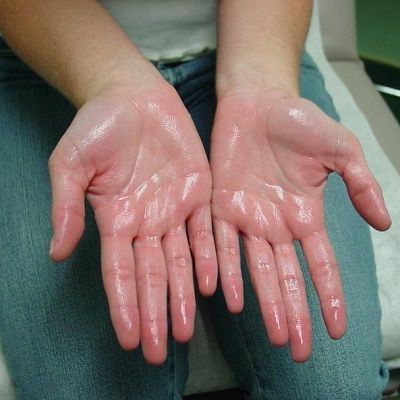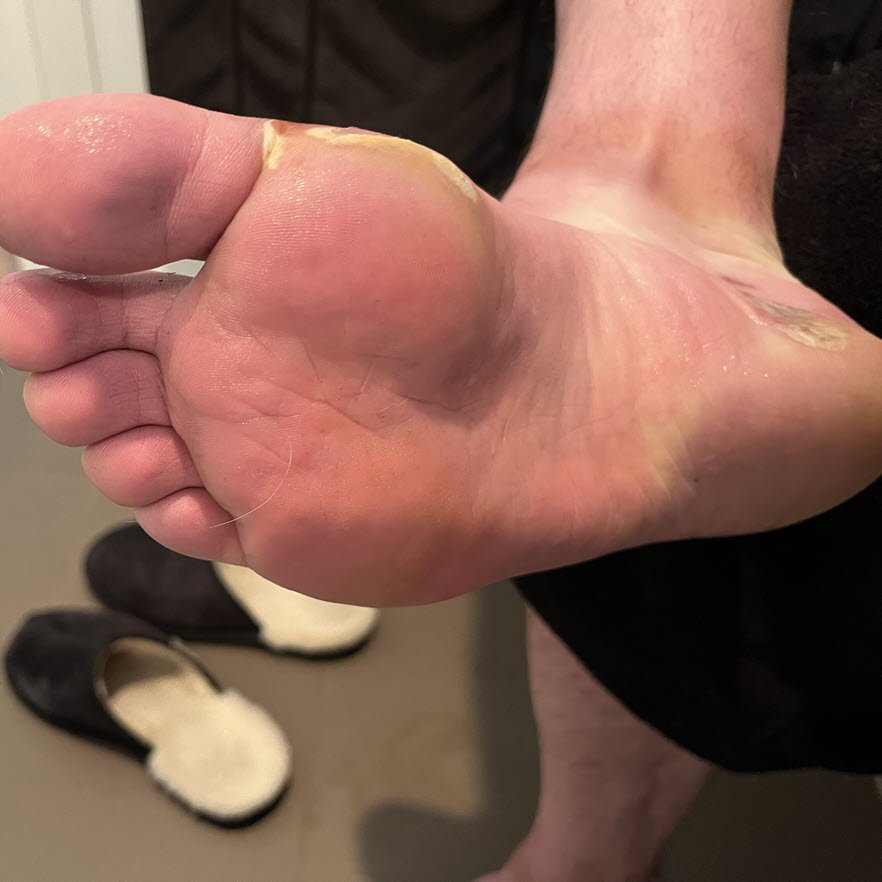Specialist Dermatology Solutions for Treatment of Hyperhydrosis of Hands: Comprehensive Guide
Specialist Dermatology Solutions for Treatment of Hyperhydrosis of Hands: Comprehensive Guide
Blog Article
Comprehending the Source of Excessive Sweating and Its Effect On Every Day Life
Too much sweating, likewise referred to as hyperhidrosis, is a condition that influences a significant part of the populace, yet its hidden causes and effects on day-to-day operating continue to be somewhat enigmatic. While it is commonly comprehended as a physical action to manage body temperature, the triggers for too much sweating can differ extensively amongst people, including not only physical elements however mental and additionally psychological components. Moreover, the effect of this condition prolongs past plain discomfort, often affecting social interactions and overall quality of life. By delving right into the origin triggers of hyperhidrosis and discovering its diverse effects, a much deeper understanding of this pervasive problem can be gained, clarifying the intricacies that people facing extreme sweating browse every day.
Physiology of Sweat Glands
The law of sweat manufacturing, a crucial physical process, is mostly controlled by the activity of sweat glands distributed throughout the human body. Sweat glands are classified into two major kinds: eccrine and apocrine glands.
When the body temperature level increases, either as a result of physical activity, high temperatures, or psychological anxiety, the anxious system triggers the sweat glands to create sweat. This sweat is composed largely of water and electrolytes like sodium and chloride. The process of sweat production is important for preserving the body's interior temperature level within a slim, ideal variety, highlighting the essential function sweat glands play in human physiology.
Triggers for Excessive Sweating
In understanding the origin creates of extreme sweating, it is important to recognize the triggers that can lead to this physiological response. Physical effort, high temperature levels, and spicy foods are additionally understood to trigger too much sweating in people prone to this problem.
Moreover, drugs such as some antidepressants, opioids, and certain supplements can additionally act as triggers for hyperhidrosis. Comprehending these triggers is essential in handling excessive sweating effectively - Treatment for hyperhydrosis of hands and feet. By recognizing and resolving the particular triggers that prompt extreme sweating in a specific, health care providers can establish tailored treatment plans to minimize this condition and improve the individual's lifestyle
Medical Conditions Associated
Connected with extreme sweating are different medical problems that can exacerbate this physiological reaction. One common condition is hyperhidrosis, a problem characterized by extraordinarily increased sweating that surpasses the body's thermoregulatory requirements. This can manifest in focal locations like the hands, soles, underarms, or face, affecting an individual's top quality of life due to social shame and discomfort.
In addition, endocrine problems such as hyperthyroidism, diabetic issues, and menopausal hot flashes can additionally lead to too much sweating. Hyperthyroidism causes an overproduction of thyroid hormones, accelerating metabolism and causing sweating. Diabetic issues can generate sweating episodes, specifically throughout hypoglycemic episodes when blood sugar level levels go down too low. Menopausal hot flashes, credited to hormonal fluctuations during menopause, can trigger abrupt and extreme sweating, often accompanied by flushing and heart palpitations.
Furthermore, infections like endocarditis, hiv, and consumption have been connected with evening sweats, a typical signs and symptom known to interfere with sleep and impact general wellness. These clinical problems highlight the varied series of underlying aspects that can read what he said add to too much sweating, demanding extensive assessment and monitoring by health care specialists.
Mental and psychological Aspects

Influence On Social Communications
Extreme sweating can have extensive effects on a person's capability to engage conveniently in social interactions. The noticeable signs of sweat discolorations or damp patches on apparel can cause embarrassment and self-consciousness, triggering people to withdraw from social scenarios. This withdrawal can impact relationships, limit social activities, and prevent specialist and personal growth.
:max_bytes(150000):strip_icc()/the-doctor-cosmetologist-makes-injections-of-botulinum-toxin-on-the-palms-of-a-woman-against-hyperhidrosis--women-s-cosmetology--skin-care--1254089846-9a8ff2f7f5dc47f18339b3c9d138c5fd.jpg)
In addition, the anxiousness and self-esteem concerns stemming from excessive sweating can impact communication and social skills. Individuals may battle to focus on discussions, join team tasks, or share themselves confidently. This can lead to sensations of isolation and isolation, as social links end up being challenging to keep.
Conclusion

While it is frequently comprehended as a physiological response to manage body temperature level, Discover More the triggers for extreme sweating can differ widely amongst individuals, including not only physical aspects yet also emotional and mental components. By diving right into the root causes of hyperhidrosis and exploring its multifaceted effects, a deeper understanding of this pervasive problem can be obtained, losing light on the intricacies that people grappling with too much sweating navigate on a daily basis.
Physical effort, high temperature levels, and spicy foods are additionally known to set off excessive sweating in individuals prone to this condition. By recognizing and dealing with the specific triggers that trigger extreme sweating in a private, healthcare providers can develop customized therapy plans to minimize this condition and boost the person's top quality of life.
Extreme sweating can have profound effects on an individual's capacity to involve comfortably in social interactions.
Report this page